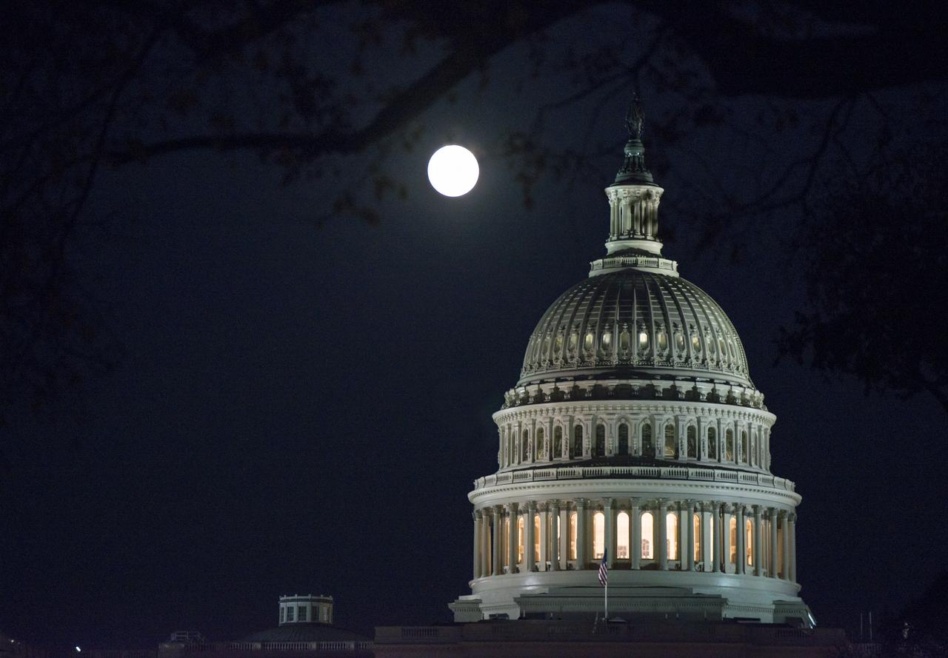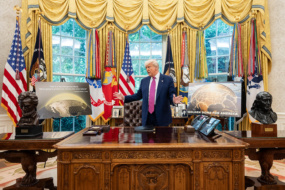President Donald Trump laid out his vision for the future of American space exploration in a presidential message marking the 56th anniversary of the Apollo 11 lunar landing on Sunday.
“As the entire world watched in awe, American astronauts stepped onto the lunar surface and planted the beautiful Stars and Stripes on the rocky soil,” Trump wrote in a message, released by the White House. “Our flag stood as a marker of national achievement, signaling to the entire world the unmatched might and unwavering resilience of the American spirit.”
Giant leaps: Trump said his administration is “building on the legacy of Apollo 11,” taking several steps to boost American leadership in space and increase partnerships with the commercial space sector, including:
- Pushing for passage of the One Big Beautiful Bill, which spent $9.9B on future lunar missions, and working toward a mission to Mars;
- “Refocusing” NASA’s Artemis program to build a permanent crewed lunar presence, and continue on to the Red Planet;
- Expanding partnerships with the commercial sector.
Trump also highlighted space-focused achievements of his first administration, including overseeing the establishment of the Space Force and reinstating the National Space Council. The council is not yet up-and-running in the second Trump term, however, despite a commitment from the administration to maintain the council.
Cutting red tape: Last week, the FCC took a big step towards one of the Trump administration’s key goals in space: eliminating bureaucracy that bogs down innovation in the private sector.
On Aug. 7, the commission will vote on a proposal to streamline application processes, eliminate some regulatory hurdles for the Ground Station as a Service industry, and make it easier to change licenses without seeking prior approval. The changes would also literally cut paperwork, by no longer requiring companies to print and keep a paper copy of their application with the FCC—saving ~21,000 pieces of paper each year.
“Our ‘Build America Agenda’ includes boosting America’s space economy,” FCC Chair Brendan Carr said in a statement. “With this proposed decision, the FCC can streamline processes, and accelerate the development of innovative new services. Clearing out regulatory barriers will empower new competitors and innovations in space, particularly the kind of neutral-host infrastructure that has proven so successful in the wireless industry.”
Industry reax: It’s a long-awaited change for companies. Tom Stroup, the president of the Satellite Industry Association, applauded the proposed reforms that would “accelerate innovation and growth in America’s space economy.”
“Some of the outdated regulatory processes governing Ground-Station-as-a-Service (GSaaS), have hindered the deployment of certain innovative Earth station infrastructure needed to support emerging satellite technologies,” Stroup told Payload in a statement. “SIA and its members look forward to working with the FCC leadership to help eliminate regulatory barriers that will empower further GSaaS and other satellite innovation and growth of America’s commercial space industry.”
One small step: The passage of these changes, however, won’t mean the work is done.
“It does not touch licensing requirements for commercial remote sensing spacecraft doing data downlinks, and licensed by the Department of Commerce,” a space industry insider told Payload. “Even if this was streamed from the FCC side, there are still burdensome things that companies have to do to downlink remote sensing data in particular.”




